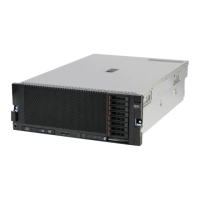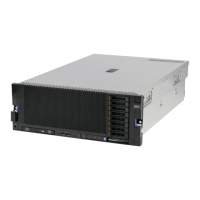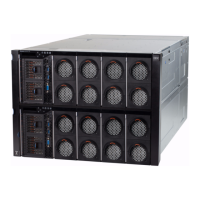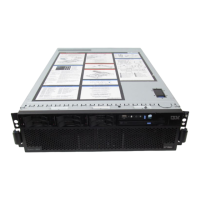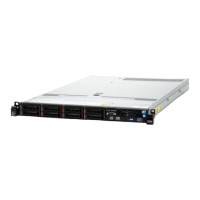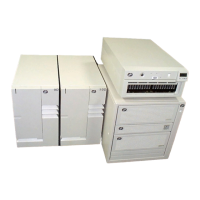IBM System x3850 X5 3
Seven PCIe 2.0 slots for maximum I/O expandability
Availability and serviceability
The x3850 X5 provides many features to simplify serviceability and increase system uptime:
Support for machine check architecture (MCA) recovery, a feature of the Intel Xeon processor E7
family, which enables the handling of system errors that otherwise require the operating system to be
halted. SAP HANA is one of the first application which leverages the MCA recovery to handle system
errors in order to prevent the application from being terminated in case of a system error.
Extensive memory protection with IBM Chipkill, and, with DIMMs containing x4 DRAM modules,
Redundant Bit Steering (RBS) (also known as Double Device Data Correction or DDDC) is also
supported . The combination of IBM Chipkill and RBS provides very robust memory protection that
sustains to two sequential memory DRAM chip failures without affecting overall system performance.
Redundant CPU-to-I/O hub interconnect links provide ability to self-recover from CPU failure. If
primary CPU fails then eX5 systems can use the second CPU to boot the OS as they still have
access to the integrated I/O devices because of redundant links between CPUs and I/O hubs.
Single image 8-way systems consisting of two interconnected 4-way nodes provide self-healing
capabilities in case of single node failure. Two independent nodes form a resilient 8-way
configuration. In case of single node failure the system can be restarted in degraded mode thus
eliminating unexpected downtime that requires service specialist to recover.
Memory mirroring and memory rank sparing for redundancy in the event of a non-correctable memory
failure.
Hot-swap drives, supporting RAID redundancy for data protection and greater system uptime.
Two 1975 W hot-swap power supplies and five fans (three hot-swap, two integrated into the power
supplies).
The power source independent light path diagnostics panel and individual light path LEDs quickly
lead the technician to failed (or failing) components, which simplifies servicing, speeds up problem
resolution, and helps improve system availability.
Predictive Failure Analysis (PFA) detects when system components (processors, VRMs, memory,
HDDs, fans, and power supplies) operate outside of standard thresholds and generates proactive
alerts in advance of a possible failure, therefore increasing uptime.
Solid-state drives (SSDs) offer significantly better reliability than traditional mechanical HDDs for
greater uptime.
Built-in Integrated Management Module (IMM) continuously monitors system parameters, triggers
alerts, and performs recovering actions in case of failures to minimize downtime.
Built-in diagnostics, using Dynamic Systems Analysis (DSA) Preboot, speed up troubleshooting tasks
to reduce service time.
Three-year customer-replaceable unit and on-site limited warranty, 9x5 next business day. Optional
service upgrades are available.
